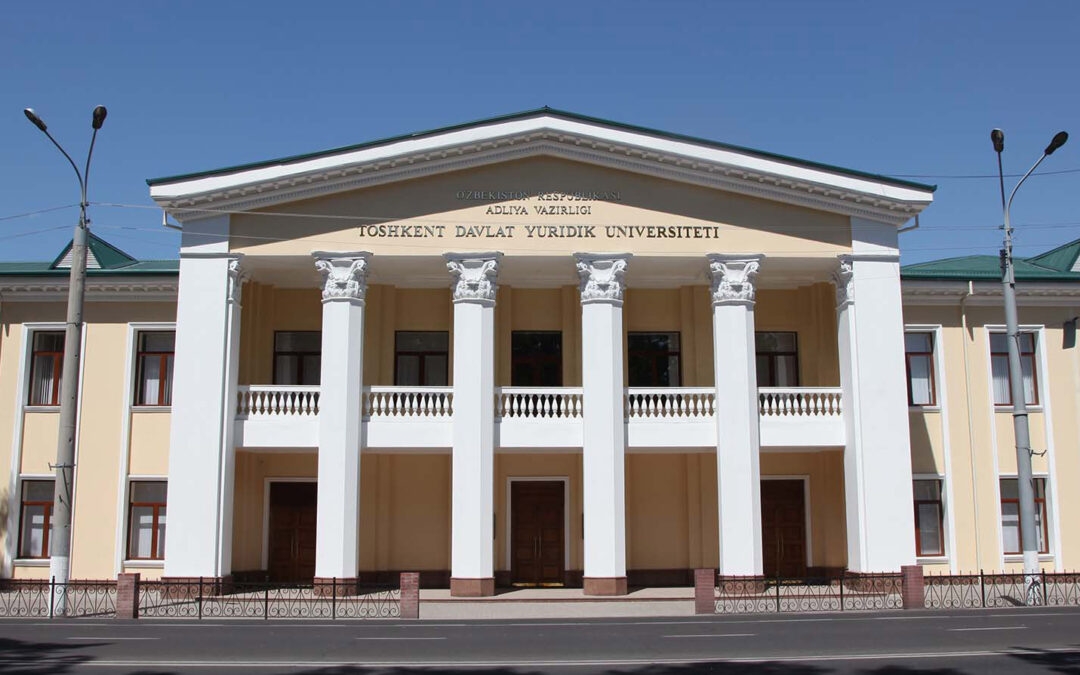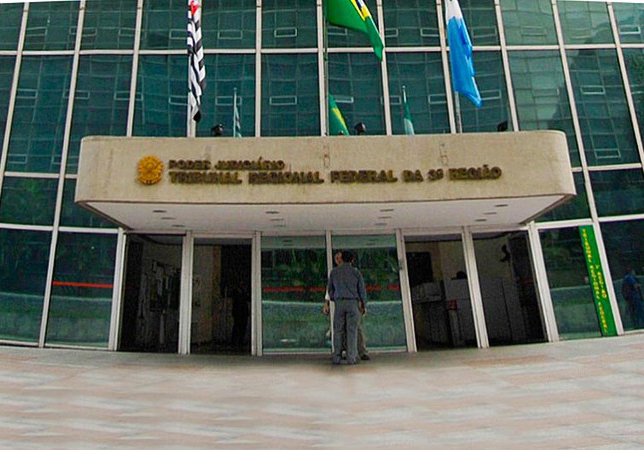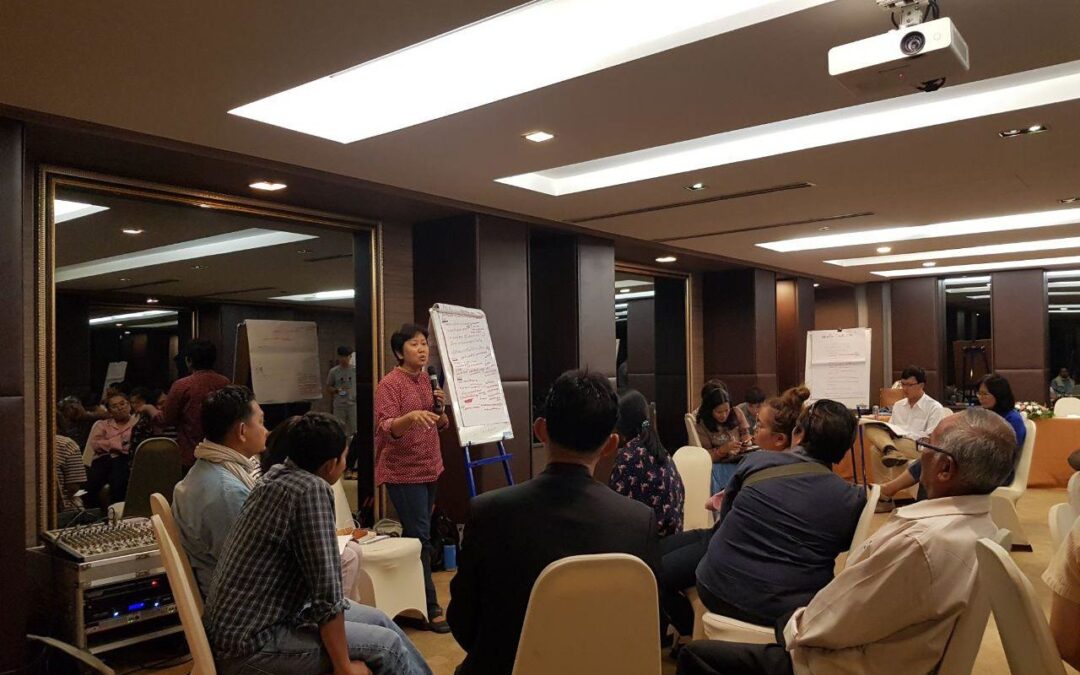
Aug 24, 2018 | Новости, Событие, Статьи
Международная комиссия юристов (МКЮ) совместно с Ташкентским государственным юридическим университетом (ТГЮУ) начинает «Экспертные дискуссии по экономическим, социальным и культурным правам».
В рамках дискуссий, МКЮ и ТГЮИ приглашают всех желающих подготовить и представить доклады (статьи) на рассмотрение рабочей группой для включения в список докладчиков и последующей их презентации, и обсуждения на первой экспертной встрече.
Первая встреча пройдет «18» сентября 2018 года в ТГЮУ. Темой первой встречи является «Право на труд» и принять участие в экспертной встрече могут все желающие, включая студентов и специалистов, интересующихся данной тематикой. Для регистрации просим пройти по следующей ссылке: https://goo.gl/forms/4WRTdugLuFI6l7Hu1. Регистрация открыта до «14 сентября» 2018 года.
Uzbekistan-ESCR Call for papers_ACCESS-News-web story-2018-RUS

Aug 23, 2018 | News
The Regional Federal Tribunal (TRF-3), in a watershed judgment, ruled that prescription or statute of limitations was not applicable to claims of reparation by a victim of torture during the military regime in the 1970s. The Court accepted the arguments of ICJ Commissioner Belisário dos Santos Jr.
The hearing in the lawsuit against the Union and the State of São Paulo took place on Wednesday 22, after the case had been dismissed by the court first instance.
Belisário dos Santos Jr., Executive Committee Member of the ICJ, argued the case for the victim at the invitation of the Juridical Department of CA XI.
He noted: “On the one hand there could be no statute of limitation on torture claims, while on the other hand the the application of the statute of limitations which adopted by Decree 20.910 / 32 had to be considered.”
The lawsuit, which began in 2012, alleges political persecution and torture that took place beginning 1971 .
Belisário dos Santos Jr. argued that the rationale for the law and jurisprudence affirming the inapplicability of statute of limitation lies in the seriousness of the violation of torture, which had been committed on a widespread and systematic basis by order or with the knowledge of high-level State authorities in Brazil at the time.
“The obligation to provide reparation under the UN Convention against Torture could not be superseded by provisions of the domestic law of a State. In addition, the obligation to provide a remedy and reparation is a legal duty of the State which must not depend on the conduct or activity of the victims. For these reasons, the case could not have the same treatment of other lawsuits against the Public Treasury,” he said.
Belisário dos Santos Jr. also pointed out that, pursuant to article 14 of the UN Convention against Torture, which was ratified by Brazil in 1991, “the reparation must be fair and adequate, as recognized by the jurisprudence of the Supreme Court of Justice and TRF 3, itself in accordance with international human rights law and jurisprudence. ”
The TRF-3 decided by 3-2 majority that the statute of limitation was inapplicable and, unanimously, granted the appeal on merit, allowing the lawsuit to proceed.

Aug 23, 2018 | News
On 22 August, the ICJ co-organized a preparatory discussion in Bangkok for civil society organizations on Thailand’s National Action Plan on Business and Human Rights (NAP).
This event was organized one day in preparation for a formal NGO consultation event on the NAP held today.
The formal NGO consultation event was organized by the National Human Rights Commission of Thailand (NHRCT) to consider the draft NAP released by Thailand’s Ministry of Justice’s Rights and Liberties Protection Department (RLPD) in August 2018.
The ICJ hosted the preparatory discussion jointly with Community Resource Centre Foundation (CRC), Amnesty International Thailand (AI Thailand), Protection International (PI), Fortify Rights and the United Nations’ Office of the High Commissioner for Human Rights (OHCHR).
Thirty members of civil society organizations from all across Thailand attended the preparatory discussion.
Of these participants, four persons from the North of Thailand were supported by the ICJ to attend the discussion, including Ms. Arisara Lekkam, Lecturer of Law at Mae Fah Luang University in Chiang Rai, who was also a speaker at the event.
The event began with a presentation about the NAP and business and human rights issues in Thailand, during which Arisara Lekkam provided an overview of the business and human rights situation in Thailand.
Following the presentation, participants divided into groups to discuss four prioritized areas covered by the NAP: Labour, Land and Natural Resources, Human Rights Defenders and Cross-Border Investment.
At the end of the discussion, each group presented a set of recommendations on the draft NAP pertaining to each prioritized area. These recommendations will be provided to the Ministry of Justice’s RLPD.
This is the third event the ICJ has held on business and human rights in collaboration with partners from the North of Thailand.
On 22 November 2017, the ICJ, in collaboration with Chiang Mai University’s Faculty of Law, held a roundtable discussion on human rights litigation concerning special economic zones in Myanmar and Thailand.
Between 29 and 31 July 2017, the ICJ, in collaboration with Chiang Mai University’s Faculty of Law, held a workshop on ‘Introduction to Business and Human Rights & Basic Principles on Documenting Human Rights Violations” for 25 academics, NGO representatives and lawyers in Chiang Mai.
Background
During the second Universal Periodic Review of Thailand in May 2016, the Royal Thai Government accepted a recommendation to develop, enact and implement a national action plan on business and human rights in order to implement the UN Guiding Principles on Business and Human Rights.
In August 2018, Thailand’s Ministry of Justice’s RLPD, which is currently leading the development of the NAP, released a revised ‘zero draft’ of the NAP.
In line with the release of the revised ‘zero draft’, the NHRCT led the organization of a formal NGO consultation event on 23 August 2018, jointly with Thailand’s Ministry of Justice, Thailand’s Ministry of Foreign Affairs, United Nations Development Programme (UNDP) and OHCHR.
The Royal Thai Government reportedly plans to launch the NAP in September 2018.

Aug 21, 2018 | Articles, Nouvelles
La CIJ et sa section polonaise ont exprimé aujourd’hui leur soutien aux actions de la Cour suprême pour défendre l’état de droit et l’indépendance du pouvoir judiciaire en Pologne, notamment en recourant à la Cour de justice des Communautés européennes (CJCE).
Ces faits interviennent dans la foulée d’attaques répétées de la part de personnalités politiques et des autorités.
La préservation et la sauvegarde de l’indépendance des tribunaux sont essentielles pour la protection des droits de l’Homme en Pologne, ont déclaré les deux organisations.
La CIJ et sa section polonaise ont exhorté les autorités exécutives et législatives du pays à cesser toute ingérence dans la conduite de ses fonctions légitimes par la Cour suprême.
La loi sur la Cour suprême qui a abouti à la «retraite» forcée d’un tiers de la Cour suprême, y compris de la présidente de la Cour, Małgorzata Gersdorf, doit être abrogée et les juges réintégrés, ont souligné la CIJ et sa section polonaise.
Le 2 août, la Cour suprême de Pologne a pris l’initiative, bienvenue, de présenter une demande de décision préliminaire à la Cour de justice de l’Union européenne (CJUE), conformément au droit de l’UE, afin de requérir son interprétation sur la conformité de la législation récente sur l’âge de la retraite des juges avec le droit de l’UE.
Plus précisément, la Cour suprême a demandé si la législation respectait le principe de l’inamovibilité des juges et de l’interdiction de la discrimination fondée sur l’âge en vertu de la directive 2000/78.
La Cour suprême a suspendu l’application de la loi tant que durera la procédure devant la CJUE.
La CIJ et sa section polonaise condamnent les attaques contre la Cour suprême de la part des autorités politiques, et notamment le président Andrzej Duda, qui ont prétendu que la suspension de l’application de la loi n’a aucun fondement juridique.
Au contraire, la Cour suprême de Pologne a agi dans le respect de ses obligations, en vertu de l’article 267 du Traité sur le fonctionnement de l’Union européenne (TFEU), pour questionner l’interprétation des traités et, conformément à la jurisprudence de la CJUE, et pour suspendre l’application de mesures qui pourraient constituer une violation du droit de l’Union européenne, dans l’attente du règlement de la question.
La législation soulève de sérieux problèmes en droit européen, tant en ce qui concerne la protection de l’état de droit en vertu de l’article 2 du TFEU que de la discrimination fondée sur l’âge.
Cette attaque contre les actions de la Cour suprême intervient alors que les autorités exécutives et législatives polonaises sapent systématiquement l’indépendance de la justice en Pologne, ce que la CIJ, sa section en Pologne et les juges du réseau mondial de la CIJ ont condamné à plusieurs reprises.
Les deux organisations soulignent que l’inamovibilité des juges est l’un des principaux piliers de l’indépendance judiciaire et donc de l’état de droit. Une lettre de la CIJ datée du 11 juillet 2018 (disponible uniquement en anglais), signée par 22 hauts magistrats de toutes les régions du monde, a exhorté le gouvernement polonais à agir immédiatement pour réintégrer les juges mis en retraite forcée.

Aug 21, 2018 | News
The ICJ and its Polish Section (ICJ Poland) today expressed their support for the actions of the Supreme Court to defend the rule of law and the independence of the judiciary in Poland, including by recourse to the European Court of Justice (CJEU).
This happened in the face of repeated attack by political figures and authorities.
Preserving and safeguarding the independence of the courts is essential for the protection of human rights in Poland, the organizations said.
The ICJ and ICJ Poland urged the Polish executive and legislative authorities to cease all interference with the conduct of the Supreme Court in the carrying out of its legitimate functions.
The law on the Supreme Court that has led to the forced “retirement” of one third of the Supreme Court, including the President of the Court, Małgorzata Gersdorf, must be repealed and the judges reinstated in office, the ICJ and ICJ Poland stressed.
On 2 August, the Supreme Court of Poland took the welcome step, in accordance with European Union law, of submitting a preliminary ruling request to the Court of Justice of the European Union (CJEU) seeking its interpretation on the compliance of the recent legislation on retirement ages of judges with EU law.
Specifically, the Supreme Court enquired as to the legislation’s compliance with the principle of irremovability of judges and the prohibition of discrimination on grounds of age under Directive 2000/78. The Supreme Court has suspended the implementation of the law during the proceedings before the CJEU.
The ICJ and ICJ Poland condemn the attacks against the Supreme Court by political authorities, including President Andrzej Duda, who claimed that the suspension of the law’s implementation has no legal basis.
On the contrary, the Supreme Court of Poland acted in compliance with its duties under article 267 of Treaty of the Functioning of the European Union to raise a question concerning the interpretation of the Treaties and, in conformity with the case-law of the CJEU, to suspend the application of such measures which may violate the law of the European Union, pending resolution of the question.
The legislation raises serious issues of EU law, both in regard to protection of the rule of law under Article 2 of the TFEU, and in regard to discrimination on grounds of age.
This attack against the actions of the Supreme Court occurs amid a systematic undermining of the independence of the judiciary in Poland by the Polish executive and legislative authorities, which the ICJ, ICJ Poland, and judges of the global ICJ network have repeatedly condemned.
The organizations emphasize that irremovability of judges is one of the main pillars of judicial independence and therefore of the rule of law. An ICJ letter of 11 July 2018, signed by 22 senior judges from all regions of the world, urged the Polish government to act immediately to reinstate the forcibly retired judges in office.









